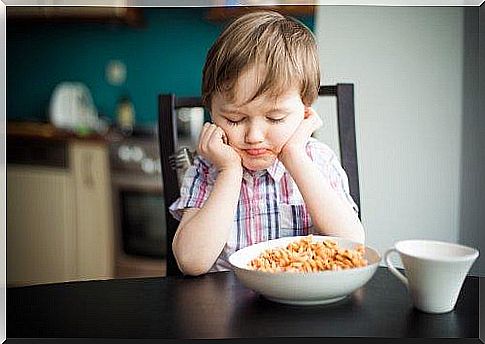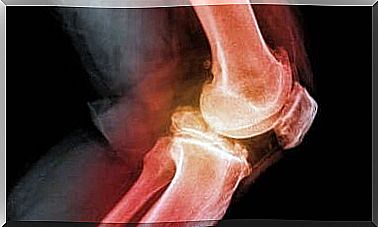My Child Does Not Want To Eat: What Happens To Him?
Children often eat when they are hungry and stop when they are satisfied. However, as parents, we need to pay attention to our child’s weight as well as their level of nutrition to rule out any health issues.

You’ve tried everything, but you just got used to the idea, “My child doesn’t want to eat. What’s happening to him ? Would he have a problem? Or is it a consequence of our family eating habits and culture? ” Continue reading this article and find out why children often have a hard time eating.
Why is my child not eating?
If your child does not want to eat, you will probably be worried about this, and this is normal, because if he does not eat, he cannot develop properly. In fact, children who do not eat well are more vulnerable to environmental factors that trigger many infectious diseases.
However, this situation is generally common among young children and those of kindergarten age. Why ? As children grow older they demand more independence and want to eat on their own ; moreover, it is linked to changes in appetite.
Fortunately, these imbalances are normal and last a short time. According to data published in Revista de Psicología Clínica con Niños y Adolescentes, 25 out of every 100 children have problems with eating. Your child is therefore not the only one in this situation!
Signs and risk factors
Although it is normal that at certain stages of their development children do not want to eat, it is important to be careful that this situation does not worsen. Therefore, below we share with you some symptoms that may indicate warning signs for your child’s health:
- Weightloss
- Irregular growth
- Nutritional deficiencies
- Inadequate psychological development
In fact, there are several important parameters that you need to pay special attention to: frequency and duration, as well as the number and magnitude of episodes. If you notice any significant changes, do not hesitate to consult a doctor.
Why doesn’t my child want to eat?

There are several factors that your child refuses to eat. According to a study published in Pediatric Reports , these factors include personality characteristics, health status and food learning.
So find out some information you need to know as parents: Parents’ behaviors and eating habits almost always have an impact on inappropriate behaviors in children.
Some of the parental factors that affect children and their eating behavior include:
- Educational skills
- Food knowledge
- Couple relationship
- Physical and emotional state
What can you do if your child doesn’t want to eat?
Set meal times
It is essential that you serve your child three meals and two snacks daily, at the same time each day. If you stick to the schedules with discipline, your child will end up going hungry at the appointed times.
In addition, it is important to set a time limit per meal; 20 minutes are enough for everything to happen in the best conditions.
Don’t force your child to eat
Sometimes, out of desperation, parents prepare special meals or force their children to eat.
- If your child doesn’t want to eat, wait until the next meal.
- If you put pressure on him, a strained atmosphere and relationship will develop between you.
Use techniques that can help you
The “ token saving system ” has been proven to work well . This technique increases a child’s motivation and receptivity to trying to taste new foods.
- In addition, it allows the child to eat more quickly and to finish his plate. Why not try ?
Eat together
Much of food education is based on the need for the family to eat together as much as possible. Eating together, without stress and without arguments, will help your child enjoy mealtime.
This habit is lost because of the hectic pace we all lead. This rhythm can affect the health of all family members.
Some additional tips

As a publication on Paediatrics & Child Health points out, there are measures that can help us improve the eating behavior of our children.
- Offer your child different foods: it is about making your child taste new foods. Know that you will probably have to do it 15 or 20 times before you can get it to taste. That is why it will be necessary for you to be patient and persevering.
- Teach him good eating habits: part of psycho-education, so that the child adopts a good eating behavior, consists in showing him the importance of eating well in order to stay healthy.
- Let him help you cook.
- Emphasize the presentation of your dishes: use original molds or form faces with the food, for example, the important thing is to make the child want to eat and get excited about the idea of eating these new foods.
- Avoid giving or taking food away from your child as a reward or punishment.
- The child should eat what you serve him. However, it is good to include at least one food that he likes in your meals.
- Make sure you don’t satisfy your hunger with milk, juice, or sugary drinks between meals.
- Serve your child in the appropriate portions for their age.
- When shopping, let him choose the healthy foods he wants.
- It is vital that you set an example: showing your child that you eat a variety of healthy foods will encourage them to do the same.
In short …
Remember that if your child doesn’t want to eat, you shouldn’t put pressure on him. Children often eat when they are hungry and stop when they are satisfied.
In addition, it is essential that you offer your child a good variety of healthy foods so that they can choose and decide how much to eat or even not to eat. We hope these tips will help you improve the eating behaviors of everyone in your household!









